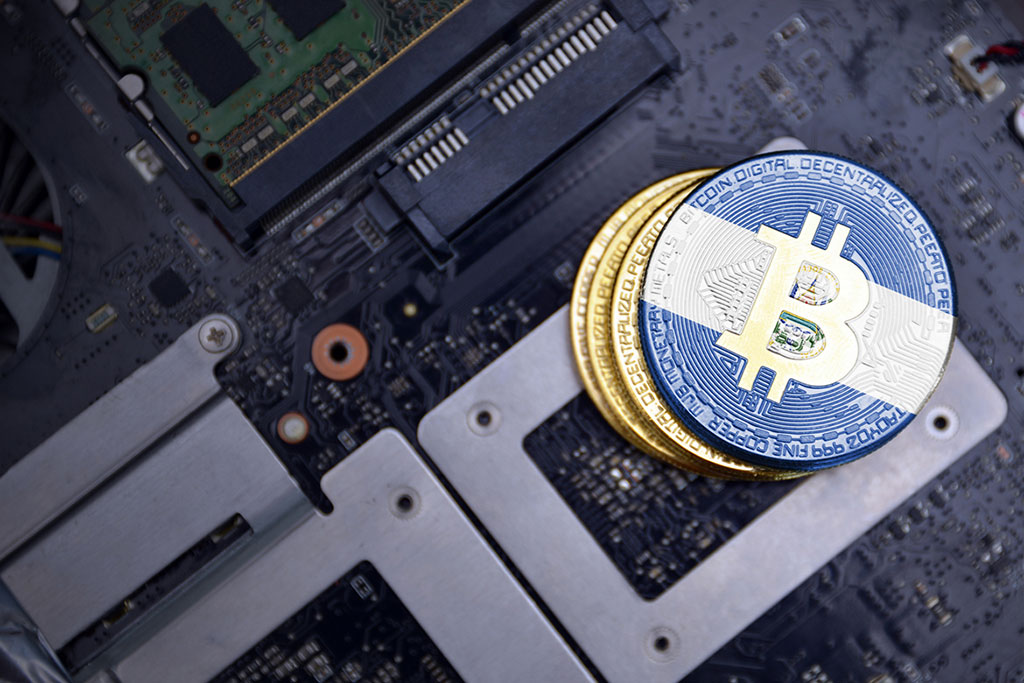
With over 3 years of crypto writing experience, Bena strives to make crypto, blockchain, Web3, and fintech accessible to all. Beyond cryptocurrencies, Bena also enjoys reading books in her spare time.
President Nayib Bukele leads an administration with a specialized “Bitcoin Office” managing mining operations. The government reports El Salvador now holds 5,750 BTC, valued at around $354 million.
 Edited by Julia Sakovich
Updated
3 mins read
Edited by Julia Sakovich
Updated
3 mins read

El Salvador keeps setting the standard for the use of cryptocurrency. In fact, since 2021, the Central American nation has mined nearly 474 Bitcoins, equivalent to around $29 million at the current price, using the energy of the Tecapa volcano.
JUST IN: 🇸🇻 El Salvador mines 474 #Bitcoin worth $29 million using its volcano-fueled geothermal power plant.
— Watcher.Guru (@WatcherGuru) May 15, 2024
Bitcoin mining in such an eco-friendly way is much different from using traditional sources of energy due to the traditional mining of bitcoins are done using fossil fuels, promising a clean and green future in crypto.
President Nayib Bukele, a vocal advocate of Bitcoin, has spearheaded this initiative. His administration boasts a dedicated “Bitcoin Office” overseeing the mining operations. This government entity reports that El Salvador’s coffers now hold a total of 5,750 BTC, with the latest additions valued at roughly $354 million.
The key to this green mining effort lies in El Salvador’s unique geography. The country sits along the “Ring of Fire,” a chain of volcanoes that stretches along the Pacific Ocean. This volcanic activity provides a readily available source of geothermal energy, a form of renewable power generated by the Earth’s heat.
To tap into this resource, the government has allocated 1.5 megawatts (MW) from the state-owned geothermal power plant specifically for powering its Bitcoin mining machines. This represents a small fraction of the plant’s total 102 MW capacity.
The traditional way of crypto mining is difficult to maintain. The way that it needs a large amount of electric power is used for the running of the complicated software for solving cryptographic puzzles and to validate transactions, which results in a dependency on coal-fired power stations and, thus, it increases greenhouse gases.
El Salvador’s method presents a possible alternative. With the use of clean and renewable geothermal energy, the aim of the federal government is to prove that sustainable crypto mining is possible. This might become a new way in this modern industry, possibly reducing the harm it does to the environment.
However, El Salvador’s Bitcoin experiment faces challenges. Critics argue that the country depends on its electricity from external sources, and a portion of this comes from non-renewable sources. Moreover, the future of the mining operation looks uncertain in the long run, given the fact that Bitcoin’s price is very unpredictable.
Even if there are liabilities to consider, El Salvador has scored with its green Bitcoin mining experiment, which is a considerable engineering feat in its own right. It represents an example of a significant effort to try and link the ever-evolving crypto realm with environmental responsibility.
Disclaimer: Coinspeaker is committed to providing unbiased and transparent reporting. This article aims to deliver accurate and timely information but should not be taken as financial or investment advice. Since market conditions can change rapidly, we encourage you to verify information on your own and consult with a professional before making any decisions based on this content.

With over 3 years of crypto writing experience, Bena strives to make crypto, blockchain, Web3, and fintech accessible to all. Beyond cryptocurrencies, Bena also enjoys reading books in her spare time.




